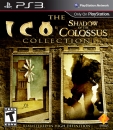"Justified Belief (Knowledge) as "Input""
(A)
Your belief IS justification in this case. (Right?) So justification still occurs -- this is an example of a self-justifying belief.
It seems like you’re saying what I’m saying. It’s just your use of “justification” here that makes me wonder - specifically when you say “justification still occurs”. I’ll briefly state the case of the last post and then conclude with it’s relation to the use of the word justification.
I demonstrated the meaninglessness/futility (for lack of a better word) of “justification” in epistemology – in that requiring knowledge for knowledge doesn’t do any service to the epistemic question and so nor does it impose any “middle process” between "mere belief" and knowledge at all.
I then gave the example of sense data in which we can clearly admit an instance of the reception (input) of knowledge (which we’ve been also calling ‘justified belief’ of course – and this is all leading up to explaining the use of that term) without some process in between: beginning with merely noting your mere belief, applying it to some process of justification, and only then to establish it as knowledge. That is to say, in the occurrence of sense data there is no doubt available of it. That is to say, in the occurrence of sense data there is no inclination to subject it to some process of justification (which, of course, we understand now to be meaningless [in the sense I described at the beginning]). Rather, you just find yourself knowing (e.g. “red” is 'apparent'/'being sensed').
Therefore because justification is “meaningless” (as a wedge between belief and knowledge) and keeping in mind that we clearly accept knowledge being directly received (input), justification is no longer a contention to raise in this subject. Relating this to my introduction on your quote: The meaningless “justification” is not occurring, rather (or not in any other sense than), knowledge is occurring.
Now I understand the inclination to still describe this instance of sense data as an instance of ‘justification’ or “an instance of self justifying belief” but that is only because we were using the term “justified belief” as a description for “knowledge” previously. Since it is now realized that justification is meaningless/futile (in the sense I described at the beginning) and that an “input” of knowledge does/can occur there is no use for the term, justification.
I only used/accepted the term “justified belief” so I could, of course, knock it down.
(B)
But it is a different situation if an input makes a claim about reality outside of one's own mind (e.g. "A cat is hurting me"). Isn't that what revelation does? When I think a cat is causing me pain, that doesn't necessarily make it true (Matrix etc.), although it is true that I am in pain.
I see a possible concern/contention of yours here but I’ll attempt to address it after we clear up any misunderstanding with the “Justified Belief (knowledge) as ‘Input’” section (or perhaps it will come up again on its own).
(C)
In what way exactly does "imputation" differ from "input"
It doesn’t essentially. It’s just another word to use. Although where ‘input’ may only refer to reception, imputation further includes reference to it’s impartation (yes, “given”). I think the meanings are dependent on each other (or rather, carry the implication) and mean essentially the same thing in this discussion. Just a semantic difference I’m pretty sure, I could drop “imputation’ for now if you feel it’s really a problem.
5.
(a1) The first part of this point (not the quote below) I’ll relate to point 7.
I do not consider revelation a type of empiricism. I do not consider empiricism a type of input. Revelation, if it exists, is input, and empiricism is a doctrine of using input* to form beliefs about the world. Revelation, if it exists, is (I allege), due to its status as input, 'fair game' for use in empiricism.
I think in the first 2 sentences I’m catching the clarification on your meaning of empiricism in that you’re not equating it with the terms input or revelation. Good to know.
The last 2 sentences I’ll relate to point 7.
(a2) Still not sure what you’re saying.
d. “Suggest it’s possible” could be taken synonymously with “even hypothetically”, sure. But actually I think it could be taken as a genuine specification. Wherein one might say “it’s possible” in the sense of the probability of something occurring within the accepted way things actually are in our reality as opposed to “it’s possible” in the sense of specifically admitting it’s not a contradictory idea so it has the potential, at least, to exist in some reality (which is what I tried to specify with “even hypothetically”). An example of the former might be in response to the question “Will the plane run out of fuel and crash?”. The latter might be in response to something like “Could flying, pink unicorns exist?” (Wherein the listener believes his understanding of reality negates the possibility for whatever reason, he can still admit in the intended sense that it’s possible if any reality were granted – what might be meant by hypothetically.)
Taken synonymously, I added “even hypothetically” for the purpose of relating to your previous specific use of the term “hypothetically”. It was a precaution because honestly I thought perhaps you might not catch what I meant by “suggest it’s possible”. No offence intended, it’s just that I’ve felt you seem to sometimes unintentionally harness a possible ambiguity or mere difference in description to create an issue (aka sophistry). So I feel it was concise in regards to my concern over your understanding of the language.
Further, I think such reiterated emphasis beginning with “even” is quiet common (though your example didn’t use it in the way I did). I don’t think it’s strange in English. Unnecessary, sure, if the person being spoken to understands what is meant already. I didn’t know if you would though. (The only example I can think of at the moment is something like “No one made it out alive, not even our beloved superhero.” lol, wherein the first phrase was truly sufficient, for some reason, an emphasis on an obvious implication can sound natural or useful for a reason I don't care to articulate at the moment.)
The point was to show a clearer way to say what I thought you were saying. And I did. I don’t see how the two words at the end being, apparently clearly, redundant/unnecessary makes the meaning of the sentence unclear. The wording/structure of the original whole sentence you wrote I found very strange. It took me a while to figure what you might have meant.
7. I agree. This is definitely about what terminology is more appropriate or, rather, common. I’ll comment on its commonality.
There also seems to be some confusion with our meaning either way on our terminology. I’ll try to clarify mine further. Now in most cases I’d comply with whatever terminology someone wishes to use but since I feel too rooted in these basic ones I’m just going to stick with mine.
Common Use of Empiricism
A quote from Bertrand Russell would be his entire book “Problems of Philosophy” in which he sets forth, entirely in reference to sense data (in my sense of the word – “red”, “cold”, etc. – not what I mean by propositional revelation), his empiricist doctrine. A particular aspect of his argument for the empirical “experience” involves what he calls “knowledge by acquaintance” which is indicative of, but not without sole reference to, sense data.
I’m not about to make a lengthy search for perfectly precise quotes I’ve heard in lectures or find them in books I've read… so here’s all I can come up with at the moment.
‘Empiricism: Any view which bases our knowledge, or the materials from which it is constructed, on experience through the traditional five senses.’ Alan Lacey ‘empiricism’ in Ted Honderich (ed.) The Oxford Companion to Philosophy (Oxford, 1995) p. 226.
(The following two, while not directly about the difference, contain the distinction:)
‘Rationalism is the view that reason, as opposed to, say, sense experience, divine revelation or reliance on institutional authority, plays a dominant role in our attempt to gain knowledge.’ Peter J. Markie ‘rationalism’ in Edqard Craig (ed.) The Concise Routledge Encyclopedia of Philosophy (London and New York, 1999) p. 740.
Rationalism: 2. Philosophy The theory that the exercise of reason, rather than experience, authority, or spiritual revelation, provides the primary basis for knowledge.
-Dictionary.com
(The following only contains the distinction between revelation and the term "senses" - lol so maybe I just like the quote:)
“Those divines [theologians] who saw that nothing but revelation could provide man with perfect certainty were right. Human scientific inquiry cannot proceed beyond the limits drawn by the insufficiency of man’s senses and the narrowness of his mind.”
—Ludwig von Mises (Philosopher/Economist), Theory and History, p. 9 (?)
Anyway, I can only say, while avoiding a great undertaking, revelation is not commonly meant as an 'input' of empiricism. I wager it would make for a good laugh or a blank stare though if one was to bring it to the table candidly with a group of philosophers.
Now to be sure, there are probably many out there that would delight in categorizing revelation within that term, especially when someone is defending revelation as a theory of knowledge (for reasons I... just am sick of articulating things at this point). It's certainly not a stipulation to take empiricism as referring only to [Edit: dealing with] what is called the senses (also a term in which I'm not stipulating a meaning) (I understand moving to use it the way you want but either way I think it's not common to include [propositional] revelation within it and confusing since I'd have to find some other word now for 'sense data'/'sensory input' that only refers to the "portion of input" I've always understood it to refer to of which I really don't know any other distinct word.)
However broad empiricism has ever been used, it's definitely not commonly intended to refer to propositional revelation.
Even in the wikipedia article of empiricism, under "philosophical usage" brings the clarification to empiricism as "sense based experiences" and, when contrasted with rationalism, "senses". (Again with my understanding of the common use of the word 'senses' as well.)
The religious dogma bit was just saying how certain philosophers would equate or refer to revelation with that term. It’s nothing important.
What I Mean By Propositional Revelation as Opposed to Sense Data
But it is a different situation if an input makes a claim about reality outside of one's own mind (e.g. "A cat is hurting me"). Isn't that what revelation does? When I think a cat is causing me pain, that doesn't necessarily make it true (Matrix etc.), although it is true that I am in pain.
At first I thought the underlined portion seemed to indicate you understood what I meant by propositional revelation in juxtaposition to empiricism's reference to sense data. If not:
What I mean by empiricism's "experience" is defined by sense data. What I mean by sense data is, for lack of better words, the receptions by what is believed to be, perhaps irrelevantly, 'sense organs'. That is to say sense data is counted as the reception/perception via interaction with and of the physical world. If there's some ambiguity there, examples would be: ‘red’, ‘cold’, or ‘pain, ect. (distinguished commonly in five categories but possibly up to sixteen).
These are not including what I mean by propositional revelation (a term often interchangeable with just revelation in such a discussion) as the things I'm speaking of are... simply not propositions. The perceptions I call sense data carry no inherent propositions. That is to say, they do not "input" entities/bodies (concrete or abstract) and (by nature of propositions) draw a relationship between said body/entity to something else (another body/entity, concrete or abstract). (Or rather, in terms of a proposition, sense data does not bring a subject in relation to a copula in relation to a predicate.) Like your example: “A cat is hurting me”. (Whereas, in this scenario, sense data only gave things like “pain”, “orange”, “yellow”, “hissss”.)
Is it clear what I mean now?
.....









 ; - ) : - ) : - ( : - P : - D : - # ( c ) ( k ) ( y ) If anyone knows the shortcut for
; - ) : - ) : - ( : - P : - D : - # ( c ) ( k ) ( y ) If anyone knows the shortcut for ![]() , let me know!
, let me know!





















































